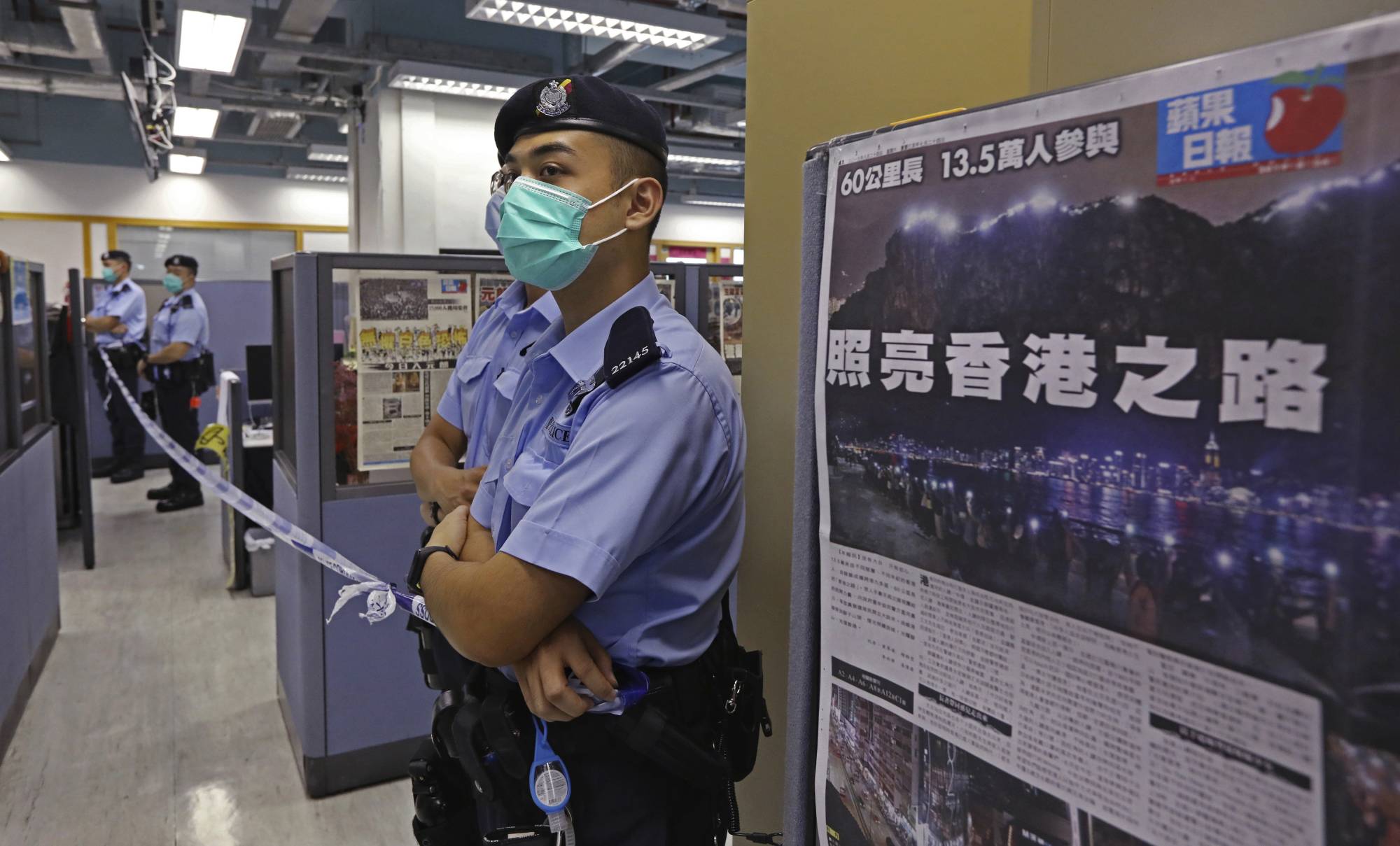Right before China retook control of Hong Kong in 1997, tycoon Jimmy Lai started Apple Daily in part to promote democracy in the city. For 25 years, the newspaper survived advertising boycotts and political pressure, but never backed off its tough coverage of the Chinese government and pro-Beijing lawmakers.
It may not last through the summer. Hong Kong police arrested Lai and several of his top executives on Monday and sent hundreds of officers to search the Apple Daily offices, a demonstration of the broad potential for the new national security law to silence criticism and dissent beyond pro-democracy protests and activism.
Passed in June, the legislation bars "crimes of secession, subversion, terrorism and collusion with foreign forces” as interpreted by the Chinese government and enforced by Beijing’s new security office in Hong Kong. Lai’s arrest wasn’t entirely unexpected, but it still shook the foundations of press freedom in the financial center and raised fears about what might come next.

















With your current subscription plan you can comment on stories. However, before writing your first comment, please create a display name in the Profile section of your subscriber account page.